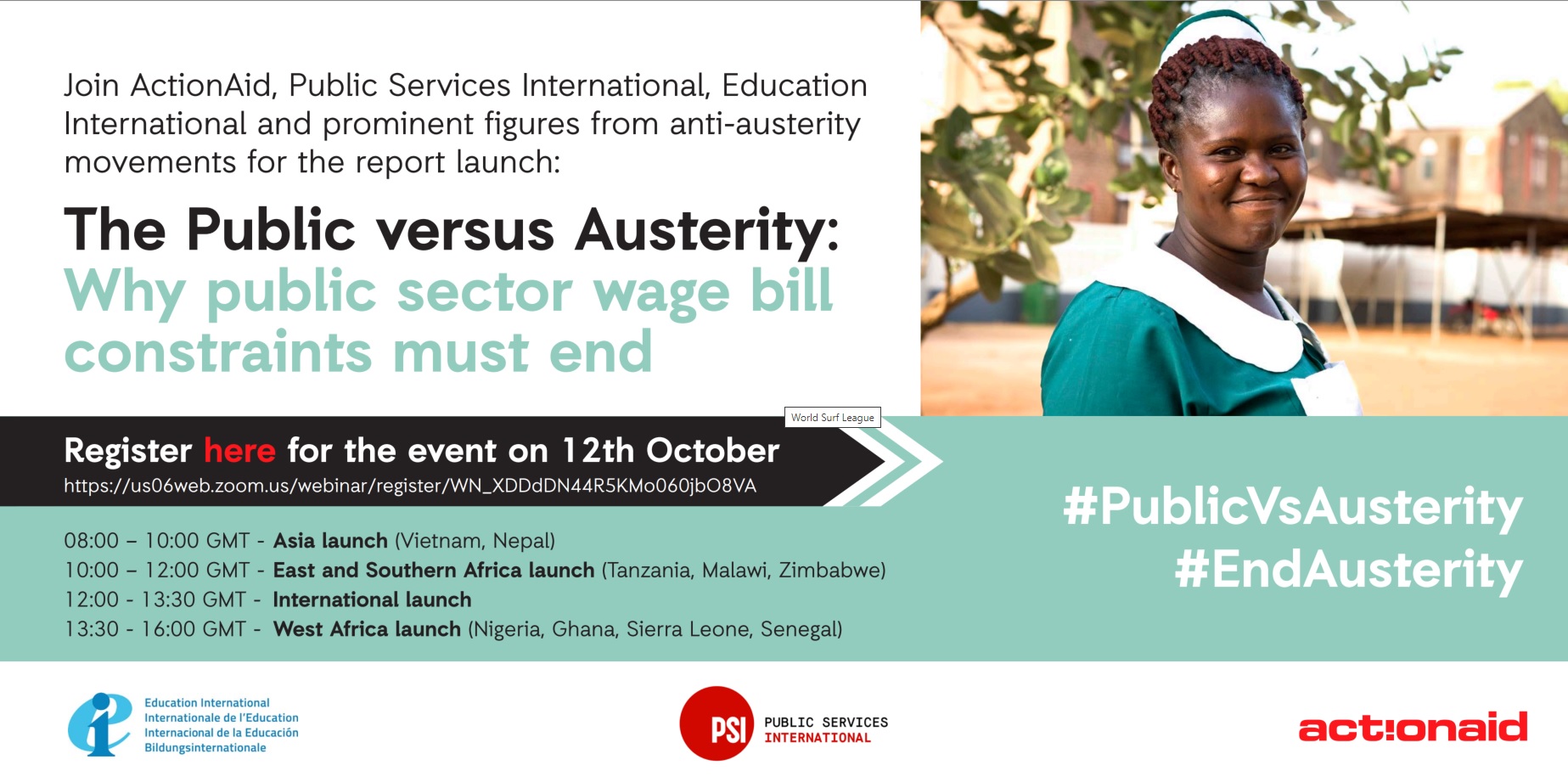The Public Versus Austerity
- 12 Oct - 12 Oct
- Genebra, Suíça
- Read this in:
- en

Why Public Sector Wage Bill Constraints Must End
The world faces a series of inter-connecting crises and responding to them will demand a complete disruption of business as usual. In the light of Covid, the growing debt crisis, rising inequality, gender injustice and the climate crisis there is an urgent need to revisit the fundamental redistributive role of States and to reimagine the public sector.
Over the past forty years, austerity policies have led to cuts in the public sector workforce that have undermined the ability of governments to deliver quality public services. Whether imposed from outside by the International Monetary Fund (IMF), or from inside by Ministries of Finance who have internalised the same neoliberal ideology, the central austerity policy that most acutely impacts public services is the imposition of public sector wage bill constraints.
There are two consequences:
Blocks to the recruitment of new teachers, nurses and other essential workers, even where there are severe shortages; and
Strict limits to the already low pay of existing health, education and other public sector workers that undermine recruitment and retention of qualified staff.
Join the leadership of ActionAid, Public Services International, Education International and prominent figures from the anti-austerity movements for the launch of our new joint report ‘The Public versus Austerity’.
Based on ground-breaking research we expose how austerity cuts in just 15 countries have blocked recruitment of over 3 million nurses, teachers and other essential public sector workers.
Our findings reveal a deeply embedded mind-set that is irrationally anti-public sector. Implementation of public sector wage bill cuts is revealed as both blunt and directionless, contradicting development goals and undermining the capacity of governments to respond to intersecting crises.
Register here for the event and then join the segments of the launch that you are most interested in. A full schedule will be shared with those who register.
Oct 12, 2021 08:00 AM in Universal Time UTC (10:00 AM in Geneva time)